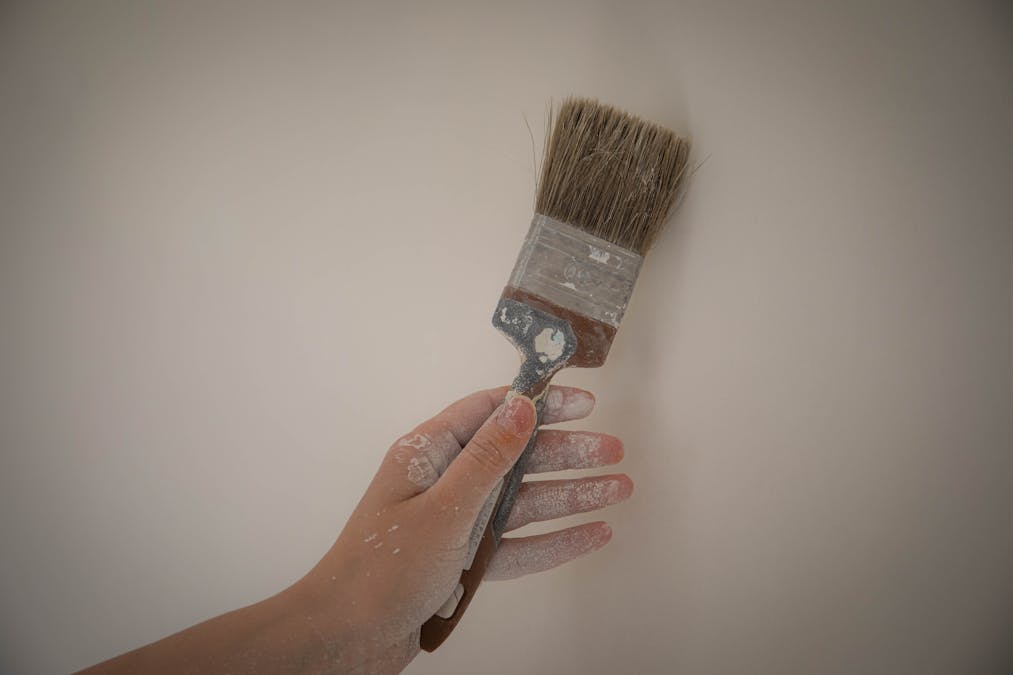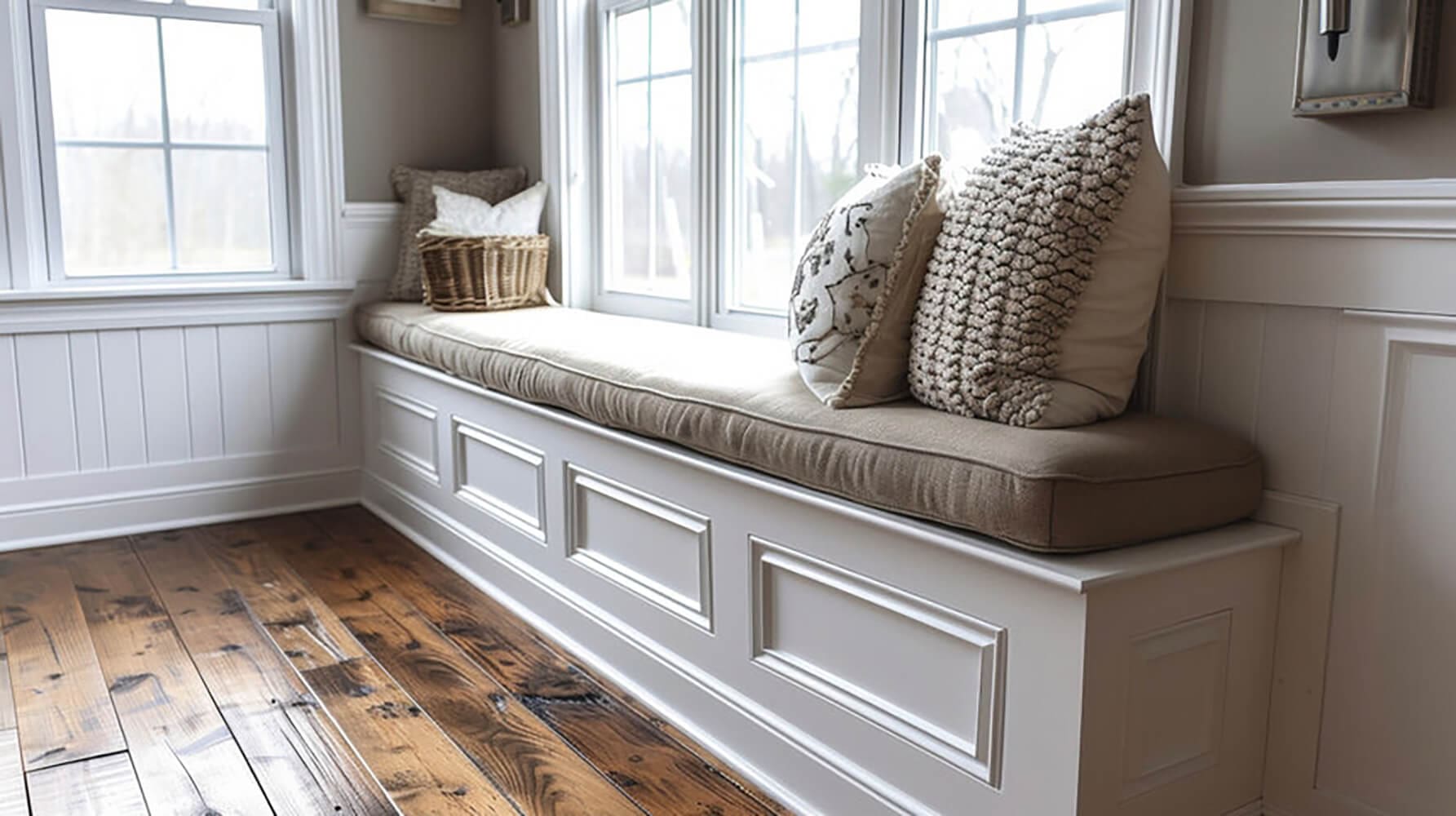
Avoiding Common Painting Scams: How to Choose a Reliable Painter
Knowing how to avoid painting scams and hire a reliable painter can protect your investment and ensure your project ends with beautiful results, not regrets. Unfortunately, not every person with a paintbrush and a van is a qualified professional. From inflated quotes to unfinished jobs and poor-quality work, shady painters can leave behind more damage than they were hired to fix.
In this blog, we’ll break down the most common painting scams, what red flags to look for, and how to confidently hire a trustworthy pro. Whether you’re updating a single room or refreshing your entire home, understanding what to expect and what to avoid can save you time, money, and frustration.
Here’s how to choose a painter you can trust, while avoiding the most common industry scams.
Common Painting Scams and How They Happen
Not all painting contractors are created equal. Some cut corners, others cut contact after taking your money. Being aware of the most common scams is your first line of defense.
Red Flags from the Start
- Extremely low estimates that seem “too good to be true” – A rock-bottom quote might feel like a win, but it usually signals subpar materials, rushed labor, or hidden fees later.
- Requests for full payment up front – No reputable painter will ask for the entire amount before lifting a brush. A small deposit? Maybe. Full payment? Red flag.
- No written contract or vague terms – If there’s no contract, there’s no accountability. Details like prep work, paint type, and timeline should be in writing.
Poor Quality or Incomplete Work
- Painters who skip prep or use subpar products – If your “new” paint starts peeling or streaking within months, it likely wasn’t prepped or applied properly.
- Jobs left unfinished after the deposit collection – Some scammers vanish once they’ve been paid, leaving you with half-painted walls and zero recourse.
- Unlicensed or uninsured crews posing as pros – If something goes wrong, you’re left holding the bill—and possibly facing property damage or injury liability.
Tactics to Pressure or Confuse Homeowners
- “Limited-time deals” or high-pressure sales – Scammers often rush you into signing, hoping you won’t read the fine print or get competing quotes.
- Refusal to provide references or reviews – A reliable painter will be proud to show off their work and connect you with past clients.
- Changing the scope or price mid-project – Without a detailed agreement, shady painters may “discover” extra charges once the job is underway.
How to Avoid Painting Scams and Hire a Reliable Painter
The best way to avoid a painting scam is to do your homework and partner with a painter who’s reputable, insured, and professional from the very first conversation.
Do Your Research
- Read Google reviews and check BBB ratings – Consistent, recent reviews offer insight into real customer experiences, good and bad.
- Look at their online presence – A professional website like with clear contact info and photos of recent work is a good sign.
- Ask for references, and call them – A trustworthy painter won’t hesitate to share the names of satisfied clients.
Verify Credentials
- Confirm they are licensed and insured – This protects you if something goes wrong on-site and ensures they meet local requirements.
- Ask about warranties or guarantees – Reputable painters stand behind their work.
- Review a written contract – It should clearly outline the job scope, timeline, materials, payment terms, and cleanup procedures.
Get Multiple Estimates
- Don’t just compare prices—compare professionalism – A detailed, written quote says a lot about how a painter will treat your home.
- Watch for bids that are way lower than the rest – These often indicate cost-cutting on labor, prep, or materials, and rarely end well.
Questions to Ask Before You Hire a Painter
A quick conversation can reveal a lot about whether a painter is the real deal or someone to avoid. These questions help you dig deeper and clarify expectations from the start.
- Can you show proof of insurance and license? This is non-negotiable. Any hesitation here is a red flag.
- Do you use employees or subcontractors? Knowing who will actually be doing the work helps set expectations for quality, consistency, and accountability.
- What kind of prep work is included in the estimate? Skipping prep is one of the most common ways low-budget painters cut corners. Prep should include cleaning, sanding, patching, and priming as needed.
- Can I see examples of your recent work? Professional painters are proud to show off their projects—photos, client testimonials, or both.
- What brand/type of paint do you use, and why? A pro should be able to explain their choice of materials and recommend the best products for your home’s surfaces.
What Sets a Professional Painter Apart
So, how do you spot a true professional? It’s more than just having a truck and a paintbrush. Great painters offer peace of mind, consistent communication, and quality results before, during, and after the job.
Communication and Transparency
- Provides a clear contract and schedule – You know exactly what’s being painted, when, and for how much.
- Explains prep, cleanup, and follow-up – A pro will outline the full scope, what they’ll do before, during, and after the painting is done.
- Responds quickly and respectfully – If they’re hard to reach now, they’ll likely be harder to reach if issues come up later.
Quality Products and Processes
- Uses premium paints from trusted brands – Higher-quality paint lasts longer, looks better, and often comes with warranties.
- Takes prep seriously – No shortcuts, just clean, smooth surfaces ready for a long-lasting finish.
- Helps with color and finish selection – Pros can guide you based on lighting, room use, and trends, without upselling or guessing.
Long-Term Value and Service
- Offers warranties and clear touch-up policies – Professionals stand behind their work and fix problems if they arise.
- Rooted in the community – Look for painters with local references and a proven reputation in your area.
- Committed to satisfaction, not speed – The goal isn’t just a quick coat, it’s a result you’ll be proud to show off.
Protect Your Home—and Your Wallet
As you’ve seen, learning how to avoid painting scams and hire a reliable painter can save you from unnecessary stress, wasted money, and disappointing results. Scams can happen to anyone, but with the right information and a few smart questions, you can protect your home and feel confident in your decision.
A trustworthy painting professional won’t dodge your questions or rush you into signing. They’ll offer transparency, provide references, and deliver quality work backed by experience and service guarantees.
Want peace of mind with your next painting project? Contact our team to get a free quote from painters you can trust.







